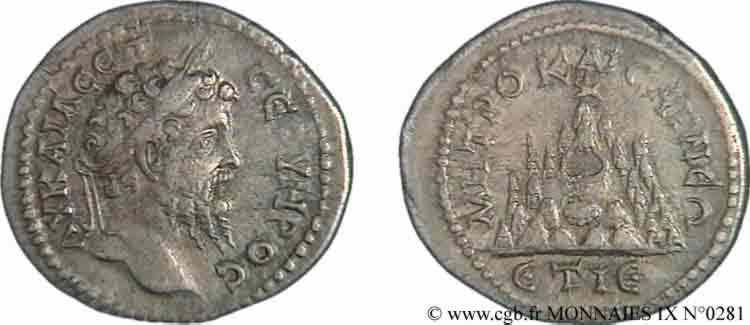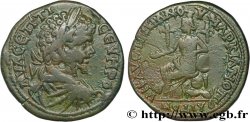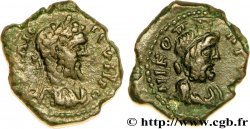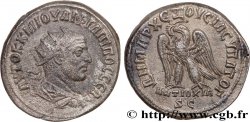v09_0281 - SEPTIMIUS SEVERUS Drachme
MONNAIES 9 (2000)
Starting price : 144.83 €
Estimate : 228.67 €
Realised price : 167.69 €
Starting price : 144.83 €
Estimate : 228.67 €
Realised price : 167.69 €
Type : Drachme
Date: an 15
Mint name / Town : Césarée, Cappadoce
Metal : silver
Diameter : 18 mm
Orientation dies : 12 h.
Weight : 3,37 g.
Rarity : R2
Coments on the condition:
Magnifique exemplaire sur un flan large avec son grènetis complet au droit et au revers / La représentation du mont Argée, au revers, est d'une qualité exceptionnelle pour ce type
Catalogue references :
Obverse
Obverse description : Tête laurée de Septime-Sévère à droite (O*).
Obverse legend : AU KAI L SEP - SEOUHROS, (Autokrator Kaisar Lusios Septimos Seouhros)
Obverse translation : (Imperator césar Lucius Septime-Sévère).
Reverse
Reverse legend : MHTPO K[A-I]CAP NE//ETIH.
Reverse description : Le mont Argée surmonté d'une étoile.
Reverse legend : MHTRO KAISAR NEW// ET IE, Mhtropolis Kaissar Newkoros// Etous IE)
Reverse translation : (Ville de Césarée décorée// an 15).
Commentary
Semble complètement inédit et non répertorié. Manque aux principaux ouvrages consultés.








 Report a mistake
Report a mistake Print the page
Print the page Share my selection
Share my selection Ask a question
Ask a question Consign / sell
Consign / sell
 Full data
Full data















